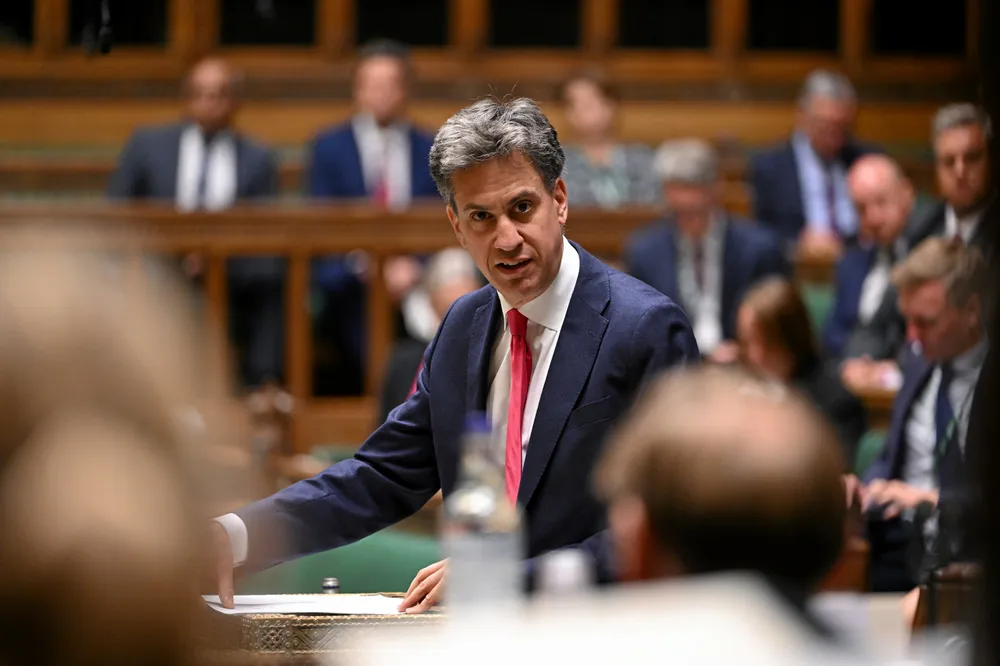'Munich owns more British offshore wind than we do': UK's Miliband makes GB Energy case
Labour contrasts current hands-off approach with role of other nations through likes of Orsted, EDF, Vattenfall and Statkraft

The German city of Munich currently owns more British offshore wind than the UK government, lamented Labour energy secretary Ed Miliband in Britain's Parliament today, as a bill to create new national clean power company GB Energy advanced.
Launching GB Energy was a key campaign pledge of Labour before its landslide election win over the former Conservative government in July.
Miliband was in the House of Commons today as the Great British Energy Bill, which proposes the formal creation of the publicly owned but independently operated clean power company, cleared its second reading.
Miliband said the Labour government will put “British public ownership back at the heart of our energy system.”
This breaks from “fourteen years of failure” under the Conservatives, which he said had left Britain “exposed to fossil fuel markets,” leading directly to the worst cost-of-living crisis in generations after the energy crisis sparked by Russia’s invasion of Ukraine.
He said the government had been “perfectly happy with state ownership of our energy system. But with one crucial overriding condition. That it would be state ownership by any country except Britain.”
Denmark, Sweden, Norway and France all own major shares in British offshore wind, he said, through their state-owned developers Orsted, Vattenfall, Statkraft and EDF.
“Indeed, get this, the city of Munich owns more of our offshore wind capacity than the British government,” he said.
This appeared to be in reference to Stadtwerke München, a municipal utility owned by the city of Munich that has stakes in the 576MW Gwynt y Mor offshore wind farm and the Awel y Môr offshore project currently under development.
They are the Hornsea 3 and 4 projects, which together will amount to around 5.5GW of capacity.
“If it’s right for the Danes, the French, the Norwegians, the Swedes, to own British energy assets, it’s right for the British people to do so as well.”
The government has already named Juergen Maier, former chief of Siemens UK, as GB Energy's chair, with appointment of a CEO still to come. The new organisation will be based in Scotland.
Claire Coutinho, who had been energy secretary for the Conservative government that was voted out in July, argued that GB Energy would not live up to the promises set by the Labour government.
She also claimed it would not help knock £300 off energy bills by 2030, which Labour Prime Minister Keir Starmer claimed his policies would do before this year’s election campaign.
After passing its second reading the Great British Energy Bill can now proceed to scrutiny by Parliamentary committee's, before returning to the House of Commons for a final vote on whether it should pass into law.
(Copyright)